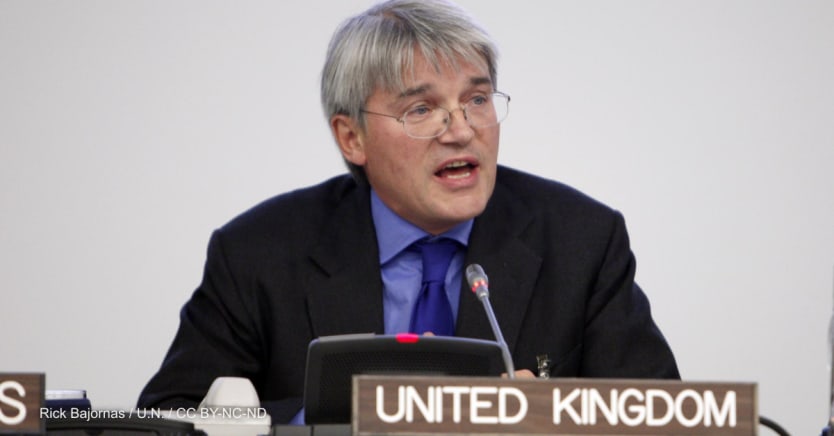
The United Kingdom’s development sector has reacted with delight to the appointment of Andrew Mitchell as development minister, 10 years after his widely renowned tenure as secretary of state for international development.
Mitchell’s appointment by new Prime Minister Rishi Sunak was an unexpected plot twist in the saga of U.K. aid and development, as Mitchell led a Conservative Party rebellion last year — which ultimately failed — against Sunak’s aid budget cuts in the Parliament, causing significant headaches for the government.
Mitchell has a strong record of defending aid and development, both within the government and the Conservative Party.
Mitchell did not respond to requests for comment but directed Devex to a tweet in which he said he was “humbled and honoured to have the opportunity to serve as Development Minister.”
The remarks were a stark contrast to the critical stance Mitchell took on the closure of the Department for International Development in 2020, calling it a “self-inflicted act of vandalism,” and then Sunak’s aid cuts, which he said was “balancing the [accounting] books on the backs of the poorest.”
The U.K.-based NGO WaterAid recently recognized Mitchell with an award on behalf of King Charles for his “far-reaching” impact on the place of water, sanitation, and hygiene, or WASH, in U.K. political and media discourse since he took the secretary of state role in 2010.
Mitchell “helped foster a greater understanding of [WASH] issues, and has brought on board new — and often unlikely — supporters. By incorporating our briefings into his work and speaking out on cuts to international aid, he has reached millions of people with our key messages,” the charity said. “He has also helped us to shape our advocacy approach over the years, leading to improved results for this important strand of our work.”
In response to the award, Mitchell said: “Clean water has been one of the casualties of the government’s foreign aid cutbacks, seeing a reduction of 80% in its funding, which has placed vulnerable communities at even greater risk. … I will continue to speak out to encourage the new government to restore the U.K.’s position as a global leader on this vital issue.”
Mitchell also improved government structures for aid, establishing the Independent Commission on Aid Impact to scrutinize spending and development work.
“We welcome Andrew Mitchell back to the job and cause that he has passionately continued to advocate for since his first tenure as development secretary — a U.K. aid budget that is both sufficient in quantity and goes to people facing poverty, conflict, and climate change,” said Simon Starling, director of policy, advocacy and research at Bond, the U.K. network for INGOs.
“We hope, under his leadership, we will see a much-needed rapid return to 0.7% and a U.K. aid budget that is effective, transparent, and accountable to both the British taxpayer and the communities we work with,” said Starling.
An exception to the widespread congratulations came from journalist Michela Wrong, who said on Twitter she hoped Mitchell would “immediately quit his well-paid consultancy at Southbridge Bank, a bank run by loyal stalwarts of Rwanda's ruling party. Not to do so would represent a serious conflict of interest.”
There was speculation on Tuesday that an increase to the U.K.’s reduced aid budget may have been used to attract Mitchell to the role. But the U.K.’s public finances remain in dire straits, with a £40 billion black hole in the budget. A fiscal statement due on Oct. 31 has now been pushed back to Nov. 17.
When Devex asked the government if the pause on nonessential aid spending has been extended until then, a Treasury spokesperson said: “The government remains committed to international development and providing support to the world's poorest, and intends to return to spending 0.7% of GNI on ODA when the fiscal situation allows.”
Former FCDO Policy Advisor Stefan Dercon said on Twitter on Wednesday that U.K. aid is “now only 0.3% of GNI once we account for all asylum/refugee costs and other spending programmes for Ukraine inside the UK … less than it was before 1997.” His remarks echoed concerns from politicians about yet another blow to the aid budget.








